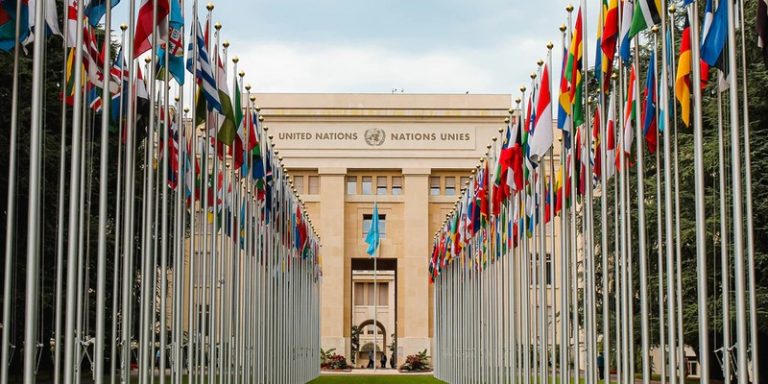
As early as 2013, Autonomous Lethal Weapons Systems (ALWS) were discussed at the United Nations Convention on Conventional Weapons (CCW). At the end of 2021, the subject was again addressed by the 125 States meeting in Geneva but, due to a lack of agreement, the dossier, referred to governmental experts, will be addressed again this year.
SALA
At the cutting edge of high technology, using artificial intelligence, SALAs are not yet the subject of a common definition, nor of an international framework. They raise serious concerns, particularly of an ethical and legal nature, and raise questions about international humanitarian law (IHL), although discussions were initiated in 2013 in Geneva within the framework of the 1980 Convention on Certain Conventional Weapons (CCW), amended in 2001.
For many of us, killer robots are part of science fiction and global public opinion does not seem concerned by the problems they already raise. However, organizations such as “Stop Robot Killers” or “Human Rights Watch” have, since 2013, launched a campaign aiming at the banning of fully autonomous weapons to which many countries have adhered and calling for a law in this sense. Mary Wareham, coordinator of the campaign, said:
“If these political leaders are truly committed to combating the threat posed by killer robots, then they should begin negotiations on a treaty banning them and require the maintenance of meaningful human control over weapons systems and the use of force.”
The Race to SALA
While some countries are against the development of SALAs and are joining the Stop Robot Killers campaign, others are more mixed, even in favor… The French Army Ethics Committee, for its part, disapproves of “robots, boosted by artificial intelligence, which themselves use integrated software to find and hit targets” but is not really against human-driven robotic armas.
All major powers are investing in artificial intelligence for their militaries. Vladimir Putin said about AI in 2017:
“Whoever becomes the leader in this field will be the master of the world.”
“Semi-autonomous weapons systems have been employed in the latest ‘modern’ wars: drones, missiles, tanks, submarines… but they are supervised by humans. According to experts, whether a killer robot can decide alone to attack with cameras, sensors, visual recognition software, algorithms, depends only on the decision of the authorities, the technology is practically operational.
The United States, China, Russia, South Korea, Australia, India, Turkey and Israel are investing in the development of lethal autonomous weapons systems that can identify, target and kill a person by themselves without any international law governing their use.
Disempowerment of man
Giving a life and death decision to a technology based on data obviously poses an ethical problem. A machine will never understand the context of an action nor its consequences. Without human intervention, the proportionality of an attack, the distinction between civilians and military will not be taken into account by the AI system. The rights of war will be flouted: a group of men wanting to surrender, for example, will be recognized as attackers and shot… Noel Sharkey, president of the International Committee for Robotic Arms Control, an expert in AI and robotics at the British University of Sheffield, said:
“Don’t be fooled by the absurdity of the intelligence of these weapons… You simply cannot trust an algorithm – no matter how intelligent – to search, identify and kill the right target, especially in the complexity of warfare.”
A legal framework needed
A race to arm SALA is already underway, protection of civilians does not really enter into it, and killer robots could fall victim to cyberattacks that could lead to global conflicts. The danger is real and a law to protect against it is essential. Even if more and more governments, institutions, AI experts, scientists… are calling for the regulation of AAS, some countries are opposed to it: Russia, the United States, India and Israel in the lead and make the implementation of a law impossible to date. While the CCW has not been able to come up with tangible recommendations, a new international treaty could be adopted through an independent process.
Translated from Robots tueurs : les Nations Unies peinent à poser un cadre juridique à l’emploi des armes létales autonomes









